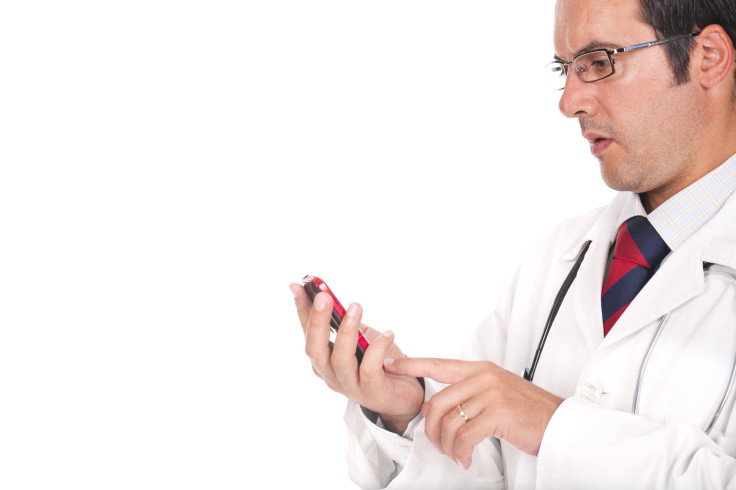‘Mobile Healthcare’ Can Help Stop Spread Of Pandemics: New Phone App, ‘Colorimetrix,’ To Monitor Diabetes And Kidney Disease

Plenty of health-related phone apps have cropped up, from those that help you watch your weight to those that monitor your blood glucose levels. A new phone app in the works, however, is taking things to a global level: Its developers claim it can help stop the spread of pandemics around the world. It’s another step in the world of mobile health care, which hopes to make health care more accessible to poorer countries and remote areas.
“This app can substitute for laboratory equipment, saving money to clinics and research institutions,” Dr. Leo Martinez, a developer of the app, said in a press release.
Researchers from the University of Cambridge developed the new phone app to help manage chronic conditions like diabetes, kidney disease, and urinary tract infections. The new app is called Colorimetrix, referring to colorimetric tests, which involve testing the chemical concentration of a solution through a strip of paper that changes colors. Colorimetric tests are used for medical monitoring and drug testing throughout the world, often at home or in remote settings. Because of this, they are convenient but can also be easily misread or misinterpreted, which can lead to false diagnosis or treatment.
The app would make colorimetric readings much easier and more accurate. According to the study, Colorimetrix would simply use the phone’s camera and an algorithm to take data from colorimetric tests, making it into a readable number onto the phone screen in a few seconds. Take a colorimetric test using saliva or urine, then take a picture of the test with your phone’s camera, and you’re set.
Colorimetrix would be able to monitor diabetes, as well as glucose, protein, and pH concentrations from simple urine test strips. “This app has the potential to help in the fight against HIV, tuberculosis and malaria in the developing world, bringing the concept of mobile healthcare to reality,” Ali Yetisen, a PhD student in the Department of Chemical Engineering & Biotechnology, said in the press release. “By quickly getting medical data from the field to doctors or centralized laboratories, it may help slow or limit the spread of pandemics.”
Mobile health care, sometimes referred to as mHealth or m-health, is the practice of medicine and public health through mobile devices. Though it’s already quite common in developed countries to utilize medical features on your iPhones, mHealth has become a useful service for people in developing countries as well, where medical care is often lacking or inefficient. The use of phones becomes a way for people living in low-income areas or countries to gain access to improved medical information and services. It’s also used to gather data and information about people in more remote areas for research.
U.S. Secretary of Health and Human Services, Kathleen Sebelius, referred to mHealth as “the biggest technology breakthrough of our time,” saying it would “address our greatest national challenge.”



























